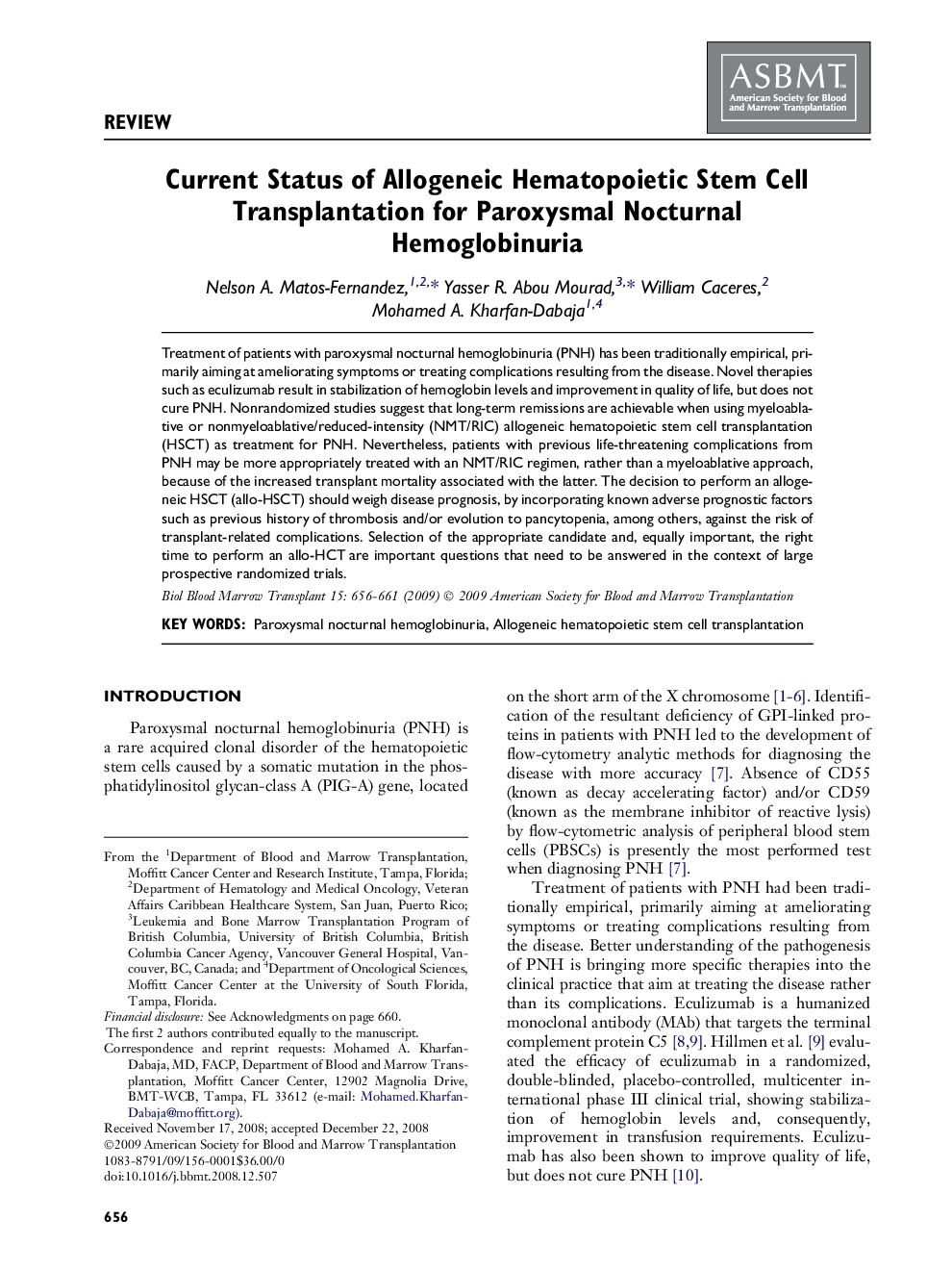| Article ID | Journal | Published Year | Pages | File Type |
|---|---|---|---|---|
| 2103465 | Biology of Blood and Marrow Transplantation | 2009 | 6 Pages |
Treatment of patients with paroxysmal nocturnal hemoglobinuria (PNH) has been traditionally empirical, primarily aiming at ameliorating symptoms or treating complications resulting from the disease. Novel therapies such as eculizumab result in stabilization of hemoglobin levels and improvement in quality of life, but does not cure PNH. Nonrandomized studies suggest that long-term remissions are achievable when using myeloablative or nonmyeloablative/reduced-intensity (NMT/RIC) allogeneic hematopoietic stem cell transplantation (HSCT) as treatment for PNH. Nevertheless, patients with previous life-threatening complications from PNH may be more appropriately treated with an NMT/RIC regimen, rather than a myeloablative approach, because of the increased transplant mortality associated with the latter. The decision to perform an allogeneic HSCT (allo-HSCT) should weigh disease prognosis, by incorporating known adverse prognostic factors such as previous history of thrombosis and/or evolution to pancytopenia, among others, against the risk of transplant-related complications. Selection of the appropriate candidate and, equally important, the right time to perform an allo-HCT are important questions that need to be answered in the context of large prospective randomized trials.
